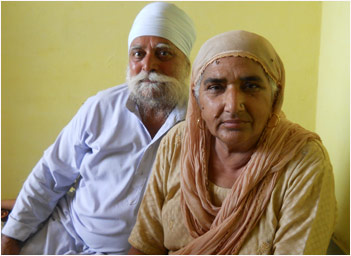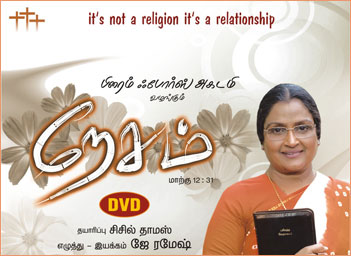
By Robin Sam
FAROOQ Shahzad (name changed) was in Dehradun when I called him on July 24. He was assisting a missionary in a few prayer meetings. He had just then decided to take a nap when the phone rang. Despite fatigue and lack of adequate sleep, he happily agreed to speak to me about what made him a believer of Jesus Christ. The Kashmiri Muslim had heard of Jesus Christ from his own people, but whatever they said about him had a tailpiece. ‘He’s only a prophet. We Muslims should not consider him to be God. That’s what the Qur’an says,’ he was told by fellow Muslims. He believed what he was taught. However, all that changed when God’s love touched him one day. He knew Jesus Christ was God. There was not a shred of doubt about that. That, he said, had been established in his mind for good.
When he could not contain the love of Jesus in him any more, he started testifying about him. He did not want to be a closet Christian for any reason whatsoever. News about Farooq Shahzad’s conversion spread in that tiny Kashmiri village. Thereafter, it didn’t take much time for the militants in the valley to come knocking at his door. They took him out and asked him if what they heard about him was true. When Farooq nodded, he was warned to forsake his faith in Jesus or face the consequences. Despite repeated warnings from the militants, when Farooq stood his ground his house was burned by the militants and his father killed. Farooq had to flee the valley to save his life. However, all the tribulations he has faced for his faith has not deterred Farooq. The young man, who has a post-graduate degree in Islamic studies, can counter the arguments of any Muslim concerning Jesus Christ, salvation, heaven and eternity.
Although there are no reliable data available, mission groups working among Muslims say a wind of change is sweeping across the community. Today, Muslims across India are discovering that Jesus (or Isa) is more than a prophet.
Muslims consider Jesus to be a Messenger of God and the Masih (Messiah) who was sent to guide the Children of Israel (banī isrā’īl) with a new scripture, the Injīl or Gospel. The holy book of the Muslims mentions Jesus 25 times, more often, by name than Muhammad. The virgin birth of Jesus is described as a miraculous event that occurred by the decree of God in the Qur’an. However, according to the Qur’an Jesus was not crucified. He was instead raised up by God to heaven. That’s why Muslims do not consider that Jesus shed His blood as remission of sins for the entire world. Although, Muslims do not agree with Christians on this account they also believe that Jesus will return to earth close to the Day of Judgment to restore justice and to defeat Masih ad-Dajjal (‘the false messiah’, otherwise known as the Antichrist).
Vivienne Stacey, who was a missionary in the Muslim world for over 50 years until her death in 2010, addresses this discrepancy in a 1987 article entitled ‘Responding Biblically to Muslims and Islam’:
‘Behold my servant shall prosper’. In Isaiah 52:13, the prophet is speaking of the suffering servant of God – Jesus the Messiah. His song is about the servant’s suffering and God’s vindication of him. As the writer to the Hebrews says, Jesus was ‘crowned with glory and honor through the suffering of Jesus’ (Hebrews 2:9). The Quran portrays Jesus as the servant of God (Abdullah) and in order to preserve the honor of this prophet Jesus (Isa), denies the fact of a shameful death by crucifixion. The Quran does not deny that Jesus was willing to die of that the Jews intended to kill him, but that in order that God’s prophet be successful and victorious, he was delivered from the shame and defeat of the cross by being taken up alive into heaven. The Quranic view of Jesus is like that of a photograph out of focus.’
Many Muslims who have embraced Christianity agree that that is the case.
Although outreach efforts among the Muslim community are bearing fruit, not many Muslims come out in the open to proclaim their faith because of fear of reprisal.
Peter Akbar, a Muslim convert to Christianity, for instance continues to be hounded by warnings and dire threats. He changed his email ID and deleted his account in a social networking website after getting numerous threat messages. However, that has not deterred him from the mission of his life. He says his burden is to reach out to his people with the message of Jesus’ love.
Like Muslims, Sikhs are considered hard to reach. Although mission agencies say in private conversation that despite years of work among the Sikh community in Punjab and Haryana not much has changed on the ground, a silent revolution seems to be under way among the Sikhs if one goes by testimonies of new converts to Christianity.
70-year-old Kulbant Singh’s family has been living in Jammu for at least two or three generations. However, they still have their roots in Punjab, their home state. When Kulbant Singh’s wife Kaldeep Kaur was diagnosed with breast cancer some time ago, his family was shattered. The family which has business interests in transport and milk distribution spent a fortune in providing the best treatment available to Kaldeep. Thanks to a Christian neighbor, the family came to believe in the power of Jesus Christ and Kaldeep experienced divine healing. Today, Kulbant Singh, his wife and their children have renounced their faith in Sikhism and have become followers of Jesus Christ. True to his calling, he has removed idols and pictures of Sikh gurus and all insignia related to Sikhism from his home. When he went to Punjab recently, Kulbant Singh visited almost every relative in his hometown to tell them about his new life in Christ.
For years, Christianity has been considered the religion of the low-caste people in south India. Although it is also called as a ‘foreign religion’, the description that it is the faith of low-caste people has gained ground over the years. All that could be changing now. Raghunathan R was a dyed-in-the –wool Brahmin until 1998. Although his transformation began a few years before that, he publicly proclaimed his faith in Jesus Christ and accepted Him as his savior 13 years ago. Raghunathan’s quest for truth began with a misplaced concern on a colleague years ago. At his office, he noticed there was a girl named Susheela who was avoiding poojas and Hindu religious functions although she went by a Hindu name. One day, he confronted her and came to know she was a secret Christian follower. Raghunathan tried every trick up his sleeve to get her to quit her faith in Jesus. However, instead of succeeding in getting her back into the fold, he started growing closer to the Lord. Eventually, he married her and they now run a ministry among Brahmins.
There are those among Brahmins who believe that there is a prophecy about a Jesus-like figure in the Purusha hymn in the 10th book of the Rig Veda. Prajapati in Sanskrit means ‘Lord of created beings’. Those who swear by this theory point to the depiction of Prajapati in the Rig Veda to support their claim that it is a prophetic revelation about the atoning sacrifice of Jesus Christ. The depiction of Prajapati as ‘one who wears a crown of thorns’, ‘who will be bound to a tree’, and ‘whose bones should not be broken’ makes them affirm that Prajapati is indeed Jesus Christ.
Whether the church supports that view or not, it sure seems to be at a loss when it comes to handling Brahmin converts to Christianity, according to Raghunathan. Their ministry, Christhava Brahmana Seva Samithi, addresses the problems faced by Brahmin converts such as the stigma that comes with the change of faith and finding marriage partners for new converts.
Although every community has its own unique set of problems, the quest for truth is universal. All religious communities and people groups are looking for answers to these fundamental questions: Why am I here on earth? Where did I come from? Where am I going? What am I worth? Do I have any intrinsic value? Do I serve a purpose? It’s important that they get the right answers. The Bible provides the answers. Jesus said: ‘I am the way, and the truth, and the life. No one comes to the Father except through me’ (John 14:6). ‘There is salvation in no one else, for there is no other name under heaven given among men by which we must be saved’ (Acts 4:12).
Why is Jesus the only way to heaven?
Because Jesus said He was the only way. “I am the Way, and the Truth, and the Life; no one comes to the Father, but through Me” (John 14:6). Just because someone says he is the only way, he doesn’t become that. That’s why we need to look at Jesus’ miracles as a proof that He was right about who He said He was. Jesus walked on water, calmed a storm with a command, raised people from the dead, and rose from the dead Himself. It is the fact of His incredible deeds.
Jesus Christ made extraordinary claims and performed extraordinary deeds. Therefore, it is logical to conclude that what Jesus said was true – especially since He claimed to be God (John 8:24,58; 10:30-33; 5:18).
As Matthew J Slick of Christian Apologetics and Research Ministry says, “No one else has done what Jesus has done. No one else has risen from the dead, calmed storms, raised others from the dead, and fulfilled numerous prophecies, etc. Though some may have claimed to be able to do one or two of these things, none have done all the things Christ has done as well as claim divinity. Since Christ has done all of these things and since He claims to be God in flesh, then it is only logical to believe what He has said… that He is the only way.”
(With additional reporting from Janet Joyce in Mumbai and Delhi and P L Bardhan in Jammu.)





















